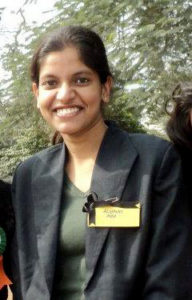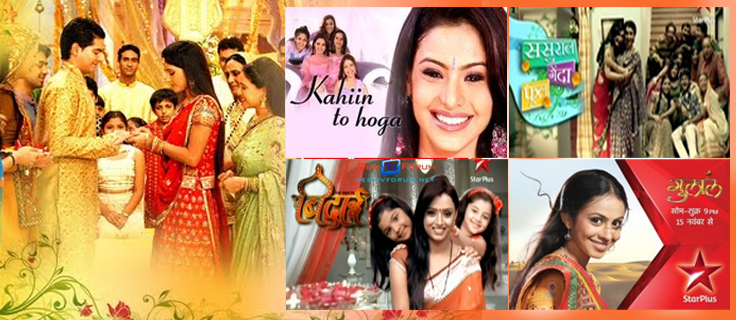Considering the importance we attach to arts and entertainment in our country, it wouldn’t be an exaggeration to say that they make a statement, if not always, a difference. Art aims to mirror a lot of us, our society in itself and the stories it tells. Fantasy and make-believe may be fascinating genres, but let’s just talk about the need to ape
eflect reality.
Television, a major aspect of the Indian entertainment arena, finds itself making a huge difference despite being the ‘small’ screen. As much as we may deny it, there are many of us (or members of our own family) who do watch hindi TV serials. A Diya Aur Baati Hum (I caught the name on the Tata Sky menu) might sound alien to you and me, but it could be part of somebody’s staple diet. The portrayal of women in these shows, then becomes extremely interesting. In societies like ours that claim to be progressive, there is much about how women are portrayed and represented that commands attention.
It’s been more than a decade since Ekta Kapoor and the Balaji phenomenon took over the country. Women clad in nine yard saris became household names and part of families. It’s interesting though, the kind of people these women were essentially. They were shown as self sacrificing selfless, devoted beings who chose to keep their own interests and desires below everything and everybody else. Family was supreme and the husband was God. Not that they couldn’t fight the world for family, but it hardly seemed like they had an identity of their own.
I’m no expert, but I don’t recall watching a single show (for the longest time) that featured a working woman as the protagonist, or a woman who walked out on a doormat of a husband. A woman who refused to take nonsense, infidelity or second class treatment. Television may have come a long way since but it is still true that a strong, sensible or forthright woman’s story does not make for a successful soap opera. Ladies Special, one can take a cue from. In fact, such ( read working, independent or with a modern outlook)women are, inevitably portrayed as manipulative, scheming creatures out to destroy the world and all the goodness that the sari clad ones bring to it. It’s a shame that for so long we have refused to acknowledge that a woman is capable of juggling both work and her duties on the domestic front. So many women in our country do actually lead such lives. Not living with in-laws, not conforming to tradition or taking a stand and making her views vocal does not make for a rebel or outcaste. Of course, she needs to have her reasons for the same, but it’s important that we realise that she’s quite capable of knowing her own mind.
More horrifying than the soaps, for me though, are reality shows like Bigg Boss. As housemates living together for some three months, its women are depicted stooping to the lowest levels possible. They are on the other extreme from the soap saga ladies when it comes to being opinionated. Their minds seem to work not just round the clock, but to the exclusion of everyone, but their own selves. And fickle would be the one word that describes them best. It’s pretty hilarious to see them change sides, go from being friends to foes (or vice versa) faster than they do their hair or make-up. I refuse to believe that normal, sane people behave this way in the real world. I hence, presume that roles are scripted for them even on these reality shows.
I don’t see anything wrong with a woman being entertaining on the small screen, but we need to strike the right balance in the kind of people we portray them to be. An item number is clearly offensive. Why then, do we not take offence to the fact that a woman is being either disrespected or made a mockery of on a national platform? Forms of offence may vary ostensibly, but the fact that characters not just follow stereotypes, rather refrain stubbornly from reflecting pleasanter realities sometimes, is scary. And what’s scarier is that we, as audiences, often lap it up. That it’s the small screen doesn’t make it a small deal at all.

About the Author
Lata Jha is currently a student of journalism at Columbia University. She has written for numerous web platforms on a wide range of issues as both volunteer and intern. She aspires to pursue a career primarily in film journalism, though she is equally vocal about issues in other spheres of life that she may feel strongly for.
